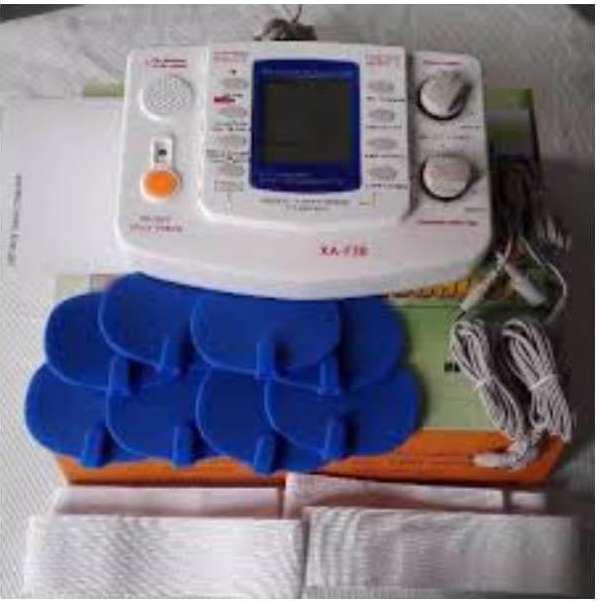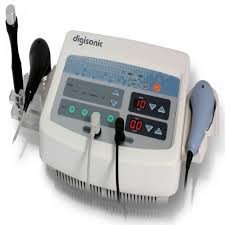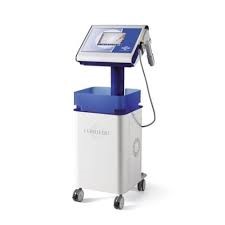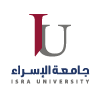المكتبة
Library
The Language Center at Isra University performs three main tasks:
First Task: Teaching the compulsory university courses in Arabic (Ar. 101) and English (En. 101) to hundreds of students each semester, with the aim of improving students' performance in both languages and equipping them with diverse linguistic skills. Additionally, remedial courses in Arabic (Ar. 99) and English (En. 99) are offered to students who do not pass the placement exams in these subjects. The centers also offers other foreign language courses, such as Hebrew and French as selective courses.
Second Task: Teaching Arabic to non-native speakers. This program is implemented through international agreements with public and private academic institutions in countries such as Korea, Turkey, and Japan. Furthermore, Arabic programs are offered to Malaysian students sponsored by the Malaysian government to obtain bachelor's degrees in Arabic or Islamic Studies. These students undergo a placement test, and based on the results, they are placed in levels where they study listening, reading, speaking, and writing skills in Arabic, aiming to improve their performance in their respective fields of study.
Third Task: Holding and administering the English language proficiency exam for postgraduate students. Those who pass this exam are exempt from taking the remedial course (En. 404), while those who do not pass are required to take this 6-credit course.
The center also computerizes the placement exams and compulsory courses exams to ensure fast results and maintain impartiality in assessing students' performance and academic achievement.
Empowering You to Walk the Extra Mile
According to the World Health Organization (WHO), approximately 1.3 billion people, or 16% of the global population, have significant disabilities. This number is increasing due to the burden of non-communicable diseases, road traffic accidents, industrial accidents, war and conflicts, and longer lifespans. People with disabilities come from diverse backgrounds and face health disparities, leading to earlier mortality and poorer health.
In 2015, in Jordan, the total number of individuals aged five years and older who reported having disabilities was 651,396, representing 11.1% of the population aged 5 years and older in Jordan, which means roughly one in nine individuals falls into this category. The most common disability among Jordanians aged 5 and above is visual impairment, with a prevalence of 6.0%, followed by motor disability (difficulty walking) at 4.8%.
Assistive technology plays a crucial role in promoting inclusion and participation, especially for individuals with disabilities, the elderly, and those with non-communicable diseases. The primary goal of assistive products is to maintain or enhance an individual's functioning and independence, which contributes to their overall well-being.
Recognizing this need, Isra University has established a center dedicated to training qualified technicians in prosthetics, providing services to community members, and supporting Jordan in implementing Objective Two of the WHO Global Disability Action Plan. This objective focuses on strengthening and extending rehabilitation services.
By establishing this centre, we aim to contribute to achieving the goal of WHO’s GATE initiative, which seeks to improve access to high-quality, affordable assistive products globally. Additionally, this project aims to ensure that all individuals can access the assistive and health services they require, of sufficient quality to be effective, without facing financial hardship. The objective is to ensure that "no one is left behind," in alignment with the Sustainable Development Goals. Additionally, the centre focuses on providing gender-sensitive services by empowering women and increasing their participation in the workforce. The establishment of the centre was approved by the board of trustees at Isra University on August 22, 2024, under decision number 2/10-2023/2024.
In many developing countries, especially in the Middle East, there is a lack of training centers that offer a range of high-quality programs to adequately train personnel in the fitting, fabrication, and assessment of prosthetics. The number of graduates from these programs is insufficient, and many of those who do graduate lack the necessary skills. Currently, over 75% of developing countries lack prosthetics training programs, leading to inadequate coverage of these essential services. Urgent action is needed to increase the number of trained personnel to ensure that everyone in need, regardless of their socio-economic status or location, can access these services. In Jordan, there is no center that trains prosthetics technicians at a middle diploma level, and the number of individuals in need of lower limb prostheses in Jordan is alarming.
The primary focus of the Prosthetics Centre is on education and training. The centre aims to prepare students and professionals in the field of prosthetics through practical training and applied programs. This helps to improve their skills and expand their job prospects in the market. Isra University's Prosthetics and Training Centre is not just a medical facility, it is a knowledge centre. Al-Isra University will be the first to establish a centre for prosthetics in Jordan and to the best of our knowledge in the region.
Vision Statement
Excellence in prosthetics industry education and training
Mission Statement
Preparing technicians in the prosthetics industry with proficient skills who can excel professionally to improve the quality of life
What do we offer
- A two-year applied diploma (middle diploma) for a prosthesis that comprises a theoretical and practical part to enhance students' skills and improve their efficiency.
- A two-year international diploma that comprises a theoretical and practical part
- Cooperation with universities and research centres to develop innovative solutions in the field of prosthetics.
- Raise awareness campaigns about the importance of prosthetics and their role in improving the quality of life.
- A prosthesis centre that increases patients’ access to prosthetics services through flexible financing programs in cooperation with civil society organisations, international bodies, and community initiatives.
For any queries please contact:
Director of IUCPT at: This email address is being protected from spambots. You need JavaScript enabled to view it.
The World Health Organization (WHO) reports that approximately 1.3 billion people, or 16% of the global population, live with significant disabilities. This number is increasing due to factors such as non-communicable diseases and longer life expectancies. In 2015, Jordan recorded 651,396 individuals aged five and older with disabilities, making up 11.1% of that age group—about one in nine people. Motor disabilities account for 4.8%, which represents 43.2% of all disabilities.
Many developing countries, particularly in the Middle East, lack training centres that provide comprehensive programs for fitting, fabricating, and assessing prosthetics. Over 75% of these nations do not have such training programs, leading to inadequate access to essential services. Immediate action is needed to increase the number of trained professionals, ensuring that everyone, regardless of socio-economic status or location, has access to these vital services.
The Isra University Prosthesis and Training Centre aims as well to link the Sustainable Development Goals (SDG 3: Good Health and Well-Being- Ensuring healthy lives and promoting the well-being for all at all ages is essential to sustainable development), (SDG 4: Quality Education - Obtaining a quality education is the foundation to improving people’s lives and sustainable development), and (SDG 10: Reduced Inequalities- To reduce inequalities, policies should be universal in principle, paying attention to the needs of disadvantaged and marginalized populations that include people with disabilities) to create a knowledge centre for prosthesis that is more accessible, and enable less privileged individuals to walk the extra mile. It is a sustainability project that ties with the SDG and will contribute to knowledge transfer. Al-Isra University will be the first to establish a centre for prosthetic limbs in Jordan and to the best of our knowledge in the region.
Increasing awareness of prosthetics and their role in enhancing individuals' quality of life is essential. Additionally, implementing an education program to train skilled prosthetic technicians is crucial for meeting workforce demands. This initiative aligns with the United Nations' broader vision for a sustainable and equitable future.
We aim to shape a sustainable and inclusive future.
Dr. Eman Zmaily
Director of the Prosthetics Center
Isra University Educational Center for Physical Therapy and Rehabilitation provides advanced and distinguished physical therapy services to students and workers at the university and the local community, in addition to training students in the specialty of physical therapy, such as treating movement disorders of neurological and musculoskeletal origin. The center is equipped with the latest devices and equipment under the supervision of a specialized and licensed medical staff. To practice the profession with a high level of experience and competence to ensure the best desired results in the rehabilitation process.
The center contains the following therapeutic tools:
1- Electrical stimulation

Electrical stimulation device is a medical device used to generate a low-level electrical current that is passed through the skin to the muscles. It stimulates the muscles to contract, which helps to strengthen them and increase their mass.
2- Ultrasound

Ultrasound therapy is used in alternative medicine to relieve bone and joint pain and relax muscles.
3- Shock wave therapy and laser

The device uses shock waves to stimulate the body's self-healing process naturally. It can be used safely in the elderly and is not dangerous to the heart. The positive effect of applying the treatment continues for several months after the sessions end
In addition to manual therapeutic techniques in physical therapy.
The rehabilitation and follow-up process is carried out under the supervision of a distinguished cadre of specialists and experts in this field, as the center receives many cases of motor injuries, the most important of which are:
- Central and peripheral nervous system disorders.
- Fractures and joint replacement operations.
- Joint pain and inflammation.
- Back pain, neck pain, and cartilage removal operations (disc).
- Soft tissue injuries and burns.
Who can apply:
The center targets Students, university workers and the local community.
Vision Statement
Leadership in teaching physical therapy skills, community service and scientific research.
Mission Statement
Providing advanced physical therapy services and graduating qualified therapists with professional skills at international standards.
For any inquiries please contact:
- Director of the Isra University Physical Therapy Center: This email address is being protected from spambots. You need JavaScript enabled to view it.


